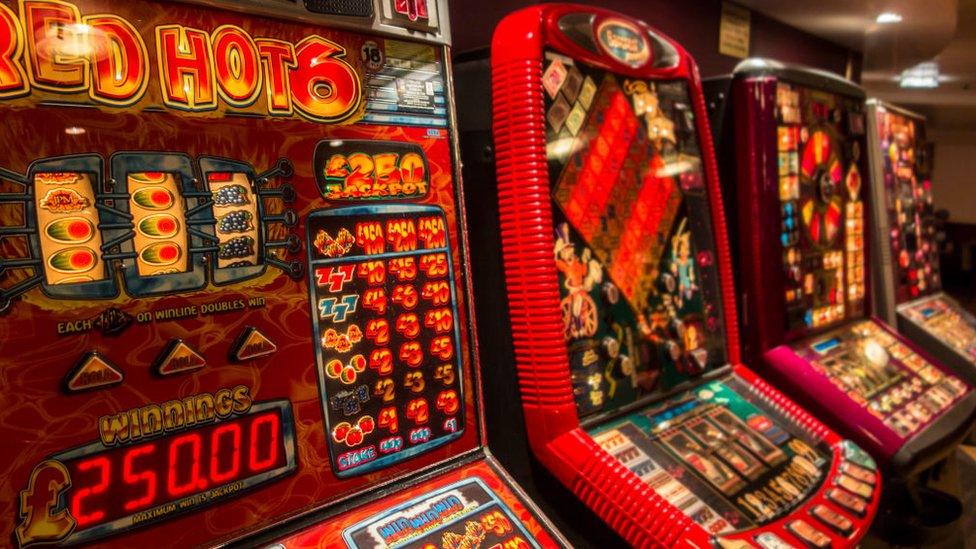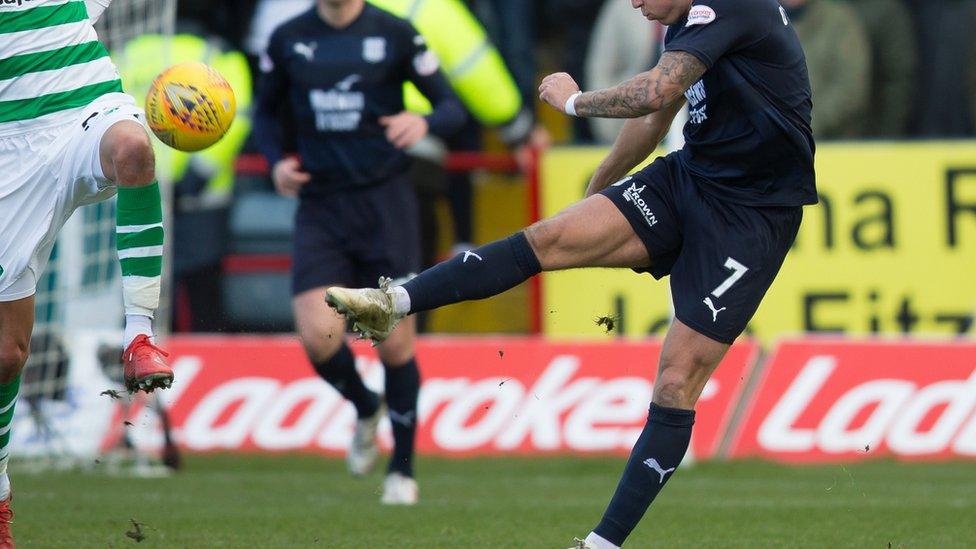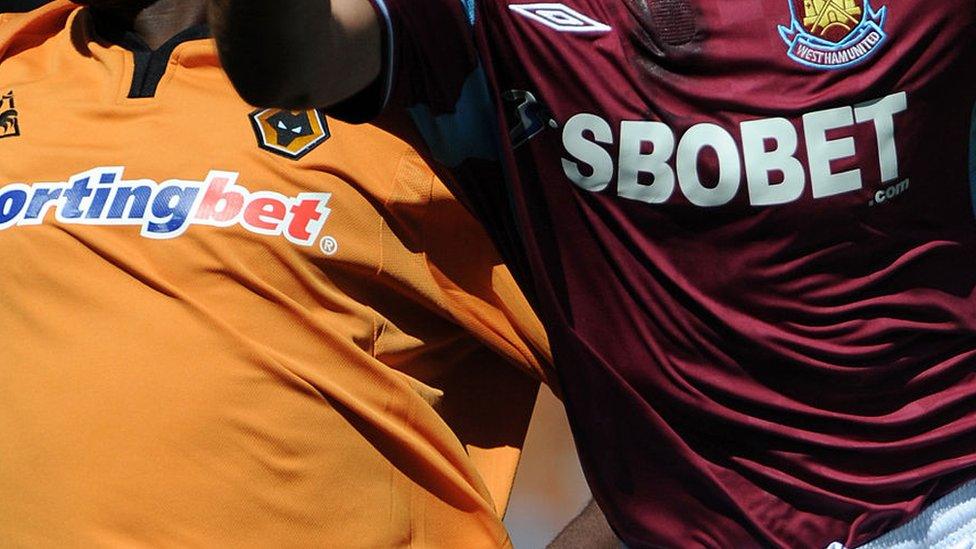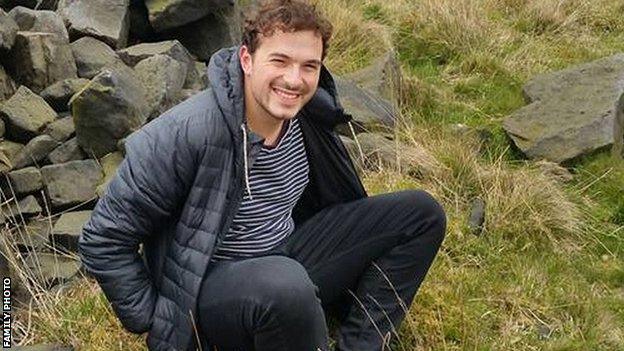New National Strategy to tackle problem gambling
- Published
- comments

Health bodies, charities, regulators and businesses are being brought together to tackle problem gambling.
The Gambling Commission says under its three-year strategy they will cut gambling-related harm "much faster".
The national strategy, external focuses on prevention, education and treatment and support for problem gamblers.
Ahead of the announcement, two UK betting giants said they would change how they advertise as part of their attempts to deal with the problem.
GVC, which owns Ladbrokes, Coral and Gala, and William Hill say they are stopping football shirt sponsorship. GVC is also stopping perimeter adverts.
And it has called for an end to all UK sports-betting broadcast advertising, at any time of the day, on live and repeated sporting events.
However, GVC's proposed ban on TV advertising did not include betting adverts during horseracing, which is seen as critical to the betting industry's profitability.
It follows increasing pressure from regulators and government to make betting companies take action to curb problem gambling.
Bookmakers Paddy Power and Betfred both pulled new high stakes roulette-style games after a warning from the Gambling Commission.
Gambling profits have been squeezed after the government forced betting companies to lower the maximum stake that can be played on their fixed-odds betting terminals (FOBTs) from £100 to £2.
Last year William Hill was hit with a £6.2m penalty package for breaching anti-money-laundering and social responsibility regulations.
'Serious health issue'
The Gambling Commission estimates that about 430,000 people are experiencing problems with gambling.
The NHS believes, external there is increasing evidence of a link between problem gambling and stress, depression and other mental health issues.
Marc Etches, head of the GambleAware charity, which contributed to the Gambling Commission's National Strategy to Reduce Gambling Harms, said: "Gambling is a serious public health issue in Britain with two million adults suffering some level of gambling-related harm, and for a few, gambling addiction ends in suicide.
"Commitments by some in the gambling industry to reduce advertising and to increase funding for research and the prevention and treatment gambling addiction are welcome but there is much more that can and should be done across the industry as a whole."

Betting companies are stopping their perimeter adverts at football matches
The Minister for Sport and Civil Society, Mims Davies, said: "Protecting people from harm should be at the heart of every gambling business. Addiction can ruin lives and it is vital that those who need help are given the right treatment at the right time."
Much of the new strategy concentrates on gathering information and research on the effects of gambling. The Commission is considering setting up a National Research Centre and has already started building a national database.
William Moyes, chairman of the Gambling Commission, said: "We all need to better understand the harms that can be caused by gambling, moving away from simply counting problem gamblers and instead build a greater understanding of the harms experienced."
Public Health England will carry out the first review of evidence on how gambling affects public health, which will be published in spring next year.
Rosanna O'Connor, director of alcohol, drugs, tobacco and justice at Public Health England, said: "There is an urgent need to develop a better understanding of these harms and how best to respond to them."

Meanwhile the betting industry has taken steps to curb problem gambling. From August, it will stop TV advertising during most live sport.
William Hill launched its "Nobody Harmed", external programme last year to help prevent problem gambling, and appointed a group director of strategy and sustainability, Lyndsay Wright, to lead it.
Philip Bowcock, chief executive of William Hill, wrote in the Daily Telegraph that switching off customers from its gambling systems for safer gambling reasons had cost it an estimated £17m.
He wrote that he believed the company should continue to tackle problem gambling: "If that means taking some short-term commercial hits, so be it. Our future relies on customers who enjoy gambling and stay gambling with us for the long term - and that is dependent on them being safe."
- Attribution
- Published6 December 2018

- Published30 March 2019

- Published2 April 2019
